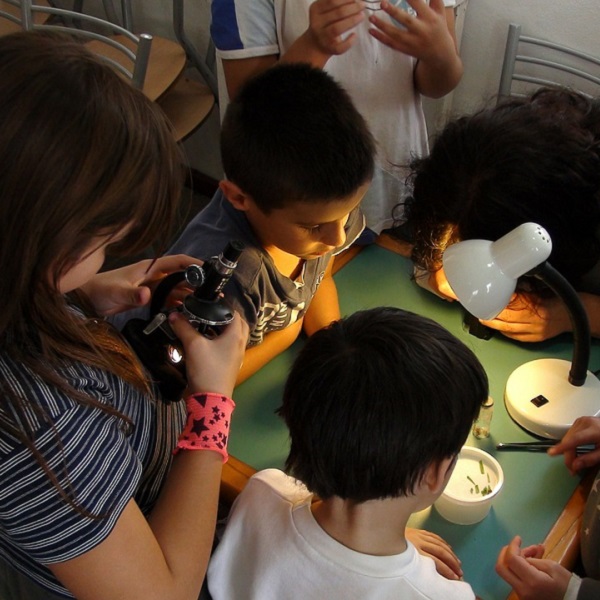Research dissemination
As a researcher, you need to "get your research out there", so that it can impact and influence other researchers and the public. Those who fund research, especially public funders, are adamant about it. After all, what would be the value of your research if nobody knew about it?
There are many ways and different audiences interested in your research, and you need to communicate with them all, academic or not.
This section includes:
- Publishing your research (disseminating to other researchers; includes Open Access and ORCID)
- Presenting at conferences (disseminating to other researchers; includes financial considerations and branding)
- Public Engagement (disseminating to wider audiences; includes media, funding and big events)
You may also be interested in:
- Commercialisation and leveraging your research with external partners (visit the Impact and partnerships page)
- Inspiring future generations of researchers (visit the Teaching and supervision page)

Writing for academic audiences
Publishing your work in specialist journals is one of the main ways for your research to be accessible to other researchers around the world. It also demonstrates your ability to carry out a project to completion and organise thoughts and data in a coherent manner.
Relevant training and resources:
In the past few years, the research sector has made a lot of progress towards ensuring international access to research, especially publicly-funded work. To comply, your research needs to be freely accessible online, either by publishing it in Open Access journals or by depositing it on Queen's Research Portal, Pure (your PI would do this).
The Open Research team in the Library provides advice around Open Access publishing, including resources and training events.
As a publishing researcher, you should also have an ORCID (see persistent identifiers Libguide). It is a unique identifier used to attribute your research to you, without ambiguity around your name.
Relevant training and resources:
Open Access Training Events organised by Open Research
Pure Training Events organised jointly by Open Research and Research, Strategy & Engagement
'Publishing, Communicating & Promoting Your Research' on the Research and Enterprise Intranet
'Pure Support' on the Research and Enterprise Intranet
'Maximising Your Research Profile' on the Research and Enterprise Intranet

Talking about your work to colleagues in your field
Going to conferences is part of a postdoc's job and is essential to showcase your research and expand your network. Whatever you are giving a talk, presenting a poster, attending online from your sofa or travelling to the other side of the world, a conference is not just about disseminating your research, but also making a good impression and advancing your career.
Relevant training and resources:
- Storytelling for researchers (workshop)
- Effective use of voice (workshop)
- Nature Masterclasses (online courses): for example 'Advancing your scientific presentations', 'Creating successful research posters', narrative tools for research'
- 'Communicating to Academic Audiences: Conferences and Events' on Research and Enterprise Intranet
- Poster printing in the McClay Library
Financial considerations of attending conferences
-
Funding options
From your grant
Most grants include a travel budget towards attending conferences to present the work and network. Part of this fund may be flagged for the postdoc employed on the grant and the first thing for you to do is to have a discussion with your PI to have an idea of the budget available.
If funds are available, your PI should support you to attend conferences as it is part of your role (for researchers at AC2 level and above at least; refer to your job description) and enables you to network and showcase your work outside of Queen's. It is expected though that your PI will only accept to fund a limited number of conferences, require that you present your work, ask you to apply for additional sources of funding and share the budget available with other members of the team.
External funding
Applying for external funding not only enables you to travel, it demonstrates your ability to secure funding and looks great on your CV! It can be a great way to develop your grant writing skills, starting small.
You should always apply for the conference funding if eligible. Most big conferences have some kind of bursary or scholarship available.
Additional funding can be obtained from professional bodies and are usually worth paying for the membership (Microbiology society...), from suppliers (Biolegend...) etc.
You can also search for travel fund on Research Professional (See Funding page) or the ECR central database.
Internal funding
The School of Medicine, Dentistry and Biomedical Sciences and the School of Nursing and Midwifery offer partial competitive funding for postdocs presenting a talk or a poster at a conference. To be eligible, you may need to demonstrate that you have also applied for external sources of funding. Find out details by asking your School Manager.
Other Schools and Centres may be able to help financially on ad hoc occasions.
Research & Innovation Conference Fund: provided by the Research and Enterprise Directorate, this internal fund supports attendance to an academic conference where applicants have been invited to showcase their work in a way that has the potential to improve the quality of their research, enhance Queen’s reputation, and initiate/ develop partnerships (e.g. oral presentation, chairing a panel, leading a workshop etc. but not presenting a poster). From 2022, eligibility to the conference fund was widen from academics only to academics and research staff, including postdocs. It is a “last resort” fund and applicants should have exhausted other opportunities before applying.
- Booking travel
Transport and accommodation to attend a conference have to be booked through Queen's travel provider, Corporate Travel Management (CTM) Ltd, which provides for instance travel insurance.
You should first look for traveling options and get an approximate idea of costs and then get approval from your line manager before booking any travel with CTM. If you want to apply to the Research and Innovation conference fund, it should also be done before booking.
Book as soon as possible as prices increase with time, and do your best to also sign up early and benefit from "early bird" reduced registration fees at conferences.
Details on the University's Travel page
For queries, contact travel@qub.ac.uk.
- Claiming expenses
When traveling for work, you can claim back some of your additional expenses (taxi, food etc.). This is done online with Qfis web or with a mobile App, uploading pictures or scans of your receipts.
The staff expenses policy, procedure, tutorials and videos on how to use the online system can be found on the staff expenses section of the Finance website.
When presenting a talk or poster at a conference, you are representing Queen's University Belfast.
As such, you need to comply with the University branding, using logos, colours and fonts that make Queen's easily recognisable nationally and internationally. All details and logos can be downloaded from the branding page.

Making your research accessible to all is a way to positively influence communities, inspire young people and build trust in research and science.
The general public is indirectly funding research (through tax, donations and by purchasing company's products and services). It is important that they understand, appreciate and benefit from it.
Researchers need to make an effort to communicate their work to people who aren't specialists and build a trusting connection with the public. We here focus on disseminating findings, involving the public in research is covered in the Impact and partnerships section.
There are a range of channels you can use: media, social media, big events and festivals, school outreach etc.
Relevant training and resources:
- Promoting Yourself and Your Research (workshop)
- How to become a research social media influencer (workshop)
- Effective Science Communication: Nature Masterclasses online course
- Social Media IT courses (Twitter, Facebook, LinkedIn, Social Media strategy)
- National Co-ordinating Centre for Public Engagement (NCCPE): provides events, guides, tips and training for academics and researchers to engage with the public
- STEM ambassador programme: volunteering programme for researchers to engage with school children to promote Science, Technology, Engineering and Mathematics
- Sentinus: organisation promoting STEM in Northern Ireland's schools
- MHLS Faculty Engagement Hub: resources, events and support for multiple types of public engagement aligned with planetary, public and personal health
A great way to communicate your work to many members of the public is to have it featured on mainstream media. This is principally print and online articles, as well as potentially radio and television.
The Communications Media team can help you identify the right platforms to promote your research, so get in touch with them (comms.officer@qub.ac.uk).
They also organise regular workshops about writing for The Conversation, an online journal for wide audiences in which all articles are written by academics and researchers (including postdocs). These articles often get picked up by other journals and increase your reach.
Find out more about writing for The Conversation
Similarly, RTÉ Brainstorm enables academics and researchers in Ireland or elsewhere to contribute to stories relevant to the news on their online platform.
Public engagement activities may cost some money, and we advise you to apply for small pots of funding to increase your proposal writing skills and funding track record.
Such activities may be funded by main UK research funders, specialist societies (Microbiology Society etc.), charities and local organisations. Partnering with existing events may provide some means to your activity.
Queen's offers funding for dissemination activities (and other types of engagement) that align with the University Research and Innovation Strategy via the Agility Fund. Your PI would need to confirm that the application is supported and in-line with your overall working objectives and employment conditions, but you can apply in your own name. Queen's Impact Acceleration Accounts (IAAs) may also provide funding to some activities related to impact.
